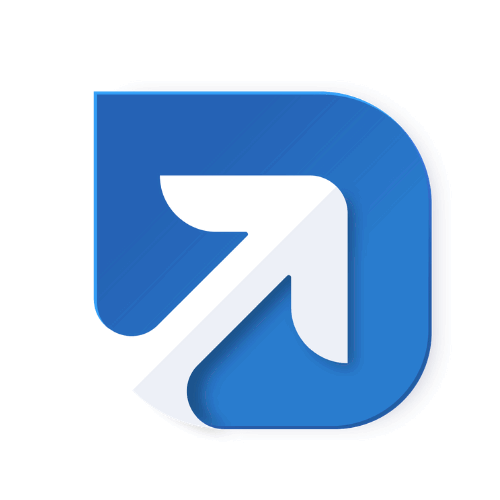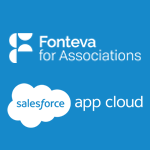Description

SurveyMonkey

Skyword
Comprehensive Overview: SurveyMonkey vs Skyword
SurveyMonkey and Skyword are two distinct tools serving different market needs. Here's a comprehensive overview of each, including their primary functions, target markets, market share, user base, and key differentiators:
SurveyMonkey
a) Primary Functions and Target Markets:
-
Primary Functions:
- SurveyMonkey is a cloud-based survey development tool that allows individuals and businesses to create, distribute, and analyze surveys online. It offers various templates and question types to suit different survey needs.
- It provides data analysis, sample selection, bias elimination, and data representation tools to interpret and present results effectively.
-
Target Markets:
- Small to large businesses across different industries who need to gather customer or employee feedback.
- Researchers and academic institutions looking for tools to conduct quantitative research.
- Non-profit organizations for feedback and data collection purposes.
b) Market Share and User Base:
- SurveyMonkey is a highly recognized name in the online survey market. Its ease of use and robust features have made it one of the most popular choices for online surveys.
- The platform serves millions of users, including a wide range of businesses from startups to large enterprises. As of recent estimates, SurveyMonkey holds a substantial portion of the market share in the online survey industry.
c) Key Differentiating Factors:
- SurveyMonkey offers an extensive library of survey templates and a user-friendly survey builder.
- It integrates seamlessly with various third-party applications which enhances its functionality and ease of data management.
- Offers advanced data analytics features, including custom reports and real-time results.
- Provides robust enterprise-level solutions with enhanced security and compliance features.
Skyword
a) Primary Functions and Target Markets:
-
Primary Functions:
- Skyword is a content marketing platform that enables brands to create, optimize, and distribute content at scale. It supports content creation, editorial workflow management, and performance analytics.
- Skyword facilitates collaboration between brands and a network of freelance content creators and subject matter experts.
-
Target Markets:
- Medium to large enterprises seeking to enhance their content marketing strategies.
- Marketing agencies aiming to streamline their content production and publication processes.
- Brands that require high-quality, engaging content to improve their digital presence and customer engagement.
b) Market Share and User Base:
- Skyword is considered a leading platform in the content marketing industry, particularly for businesses focusing on storytelling and high-quality content production.
- While it does not match the ubiquitous brand presence of SurveyMonkey in its respective domain, Skyword has a dedicated user base among enterprises prioritizing content marketing as a core component of their strategy.
c) Key Differentiating Factors:
- Offers a comprehensive solution for content marketing with a focus on performance-driven content creation.
- Connects brands with a vetted community of freelance writers and subject matter experts, allowing for specialized content creation.
- Provides detailed performance analytics to measure the impact of content and optimize towards business objectives.
- Skyword’s platform is tailored for scalability, supporting complex editorial workflows for larger organizations.
Comparison Summary
- Functionality: SurveyMonkey focuses on survey creation and analysis, while Skyword is centered around content marketing and creation.
- Target Market: SurveyMonkey targets a broad range of industries for feedback collection, whereas Skyword targets businesses looking to optimize and manage content marketing.
- Market Position: SurveyMonkey has a larger, more general user base due to its universal application in survey needs, while Skyword serves a niche in content marketing.
- Key Features: SurveyMonkey is revered for its survey tools and ease of use, while Skyword is known for its creative and analytical capabilities in content marketing.
Both platforms cater to distinct needs within their domains, offering specialized tools to achieve specific business outcomes.
Contact Info

Year founded :
1999
Not Available
Not Available
United States
Not Available

Year founded :
2010
+1 800-778-7879
Not Available
United States
http://www.linkedin.com/company/skyword
Feature Similarity Breakdown: SurveyMonkey, Skyword
SurveyMonkey and Skyword serve different primary purposes—SurveyMonkey is a survey development cloud-based software, while Skyword is a content marketing platform. However, they share some high-level features given their roles in collecting data and facilitating communication.
a) Core Features in Common
-
Data Collection:
- SurveyMonkey: Primarily dedicated to gathering user feedback through surveys.
- Skyword: Collects data indirectly by analyzing content performance and audience engagement.
-
Reporting and Analytics:
- Both platforms provide options to view data insights and analytics.
- SurveyMonkey offers analytics on survey responses.
- Skyword offers performance analytics on content marketing efforts.
-
Customization:
- SurveyMonkey allows customization of surveys to align with brand needs.
- Skyword offers customizable content strategies and campaigns.
-
Collaboration Tools:
- SurveyMonkey includes team collaboration features for survey creation and review.
- Skyword facilitates collaboration among content creators and marketers.
b) User Interface Comparison
-
SurveyMonkey:
- Interface Style: User-friendly, primarily focused on simplicity and efficiency for quickly creating and distributing surveys.
- Design: Intuitive with drag-and-drop functionality for survey design.
-
Skyword:
- Interface Style: More complex, designed for managing large-scale content operations, and often includes dashboards for content management, editorial calendar, and performance tracking.
- Design: Comprehensive, with various modules for different aspects of content marketing.
c) Unique Features
-
SurveyMonkey:
- Survey Distribution Networks: Offers various ways to distribute surveys including via email, web, social media, and more.
- Question Bank and Templates: Extensive library of pre-built survey templates and questions.
- Audience Panel: Access to a global audience for feedback beyond an enterprise's existing customer base.
-
Skyword:
- Content Planning and Workflow Management: Specialized tools for planning, creating, and distributing content seamlessly.
- Integration with SEO and Social Media: Built-in SEO recommendations, and integration with social media platforms for content distribution.
- Talent Management: Access to a network of freelance writers and content creators for producing high-quality content.
In summary, while both platforms focus on data collection and analytics, SurveyMonkey is centered around creating and managing surveys, while Skyword is focused on content creation and marketing strategies. Their interfaces are tailored to their specific use cases, with unique features that reflect their core functions—SurveyMonkey for survey distribution and audience reach, and Skyword for content planning and execution.
Features

Not Available

Not Available
Best Fit Use Cases: SurveyMonkey, Skyword
SurveyMonkey
a) Best Fit Use Cases for SurveyMonkey:
SurveyMonkey is best suited for businesses or projects that need to gather feedback, conduct market research, or perform any kind of data collection through surveys. It is particularly effective for:
- Small to Medium Enterprises (SMEs): These businesses often lack the resources for extensive market research, and SurveyMonkey provides an affordable way to gather customer feedback and insights.
- Educational Institutions: Schools and universities can use it for course evaluations, student satisfaction surveys, or alumni feedback.
- Nonprofits and NGOs: Gathering data on donor experiences or evaluating the impact of programs is crucial for these organizations.
- HR Departments: SurveyMonkey is ideal for employee engagement surveys, exit interviews, or 360-degree feedback surveys within companies.
- Marketing Teams: Brands can use SurveyMonkey for post-event feedback, brand awareness studies, and customer satisfaction surveys.
d) Catering to Different Industry Verticals or Company Sizes:
SurveyMonkey is incredibly versatile and scales well, making it useful across various industries including healthcare (patient feedback), retail (customer satisfaction), and tech (user experience testing). It caters to different company sizes by offering plans ranging from free versions with basic functionalities to advanced versions for larger enterprises with more complex needs. Its simple interface and robust analytics tools make it accessible for smaller businesses while its integrations and advanced features support the needs of larger enterprises.
Skyword
b) Preferred Scenarios for Skyword:
Skyword is a content marketing platform that specializes in helping brands create, manage, and promote high-quality content. It is particularly beneficial for:
- Content-Driven Businesses: Companies that rely heavily on content marketing to engage consumers, such as media companies, online publishers, or brands with complex product stories.
- Marketing Agencies: Agencies managing content for multiple clients can leverage Skyword’s capabilities for streamlined content creation and distribution processes.
- Enterprises with Strong Branding Needs: Companies looking to enhance brand storytelling and engage audiences through consistent, high-quality content will find value in Skyword.
- Industries with Complex Narratives: Industries like healthcare, finance, and technology that require in-depth articles or need to simplify complex information for a broader audience.
d) Catering to Different Industry Verticals or Company Sizes:
Skyword is designed to cater to mid-sized to large enterprises that have established content marketing strategies or wish to scale up their content operations. It supports various industry verticals including healthcare, technology, and finance by providing specialized content creation that aligns with the narrative and compliance needs of these industries. The platform scales with a company’s growth and integrates well with existing marketing technologies, which is crucial for larger companies looking for comprehensive content solutions. Its focus on storytelling caters well to industries where brand narrative is key to differentiation and customer engagement.
Pricing

Pricing Not Available

Pricing Not Available
Metrics History
Metrics History
Comparing teamSize across companies
Conclusion & Final Verdict: SurveyMonkey vs Skyword
When evaluating SurveyMonkey and Skyword, it’s important to understand that these tools serve different primary functions within the business ecosystem. SurveyMonkey focuses on survey creation and data analytics, while Skyword specializes in content marketing and creation. Here is a comparative analysis that provides a conclusion and final verdict based on various factors:
a) Best Overall Value
SurveyMonkey offers the best overall value for businesses specifically looking for tools to gather feedback, conduct market research, and gain insights through surveys. It is particularly well-suited for businesses that prioritize data collection and analysis as a primary function of their operations.
Skyword, on the other hand, represents better value for companies seeking robust content marketing solutions, particularly those that need to scale their content production, engage audiences, and manage editorial workflows effectively.
b) Pros and Cons
SurveyMonkey
-
Pros:
- Easy-to-use interface with a wide range of customizable templates.
- Strong analytics features with real-time data tracking and reporting.
- Multiple distribution methods for surveys, including email, web links, and social media.
- Scalability to cater to both small businesses and large enterprises.
-
Cons:
- Primarily focused on survey-related functions, limiting its utility outside of data collection.
- Advanced features and larger respondent pools can be expensive.
- May not offer as many integrations with content-focused tools.
Skyword
-
Pros:
- Comprehensive suite for content creation and marketing, improving workflow and editorial process.
- Ability to build and scale personalized content strategies with ease.
- Strong project management and collaborative features.
- Integrations with SEO tools and analytics to track performance.
-
Cons:
- Can be complex to implement for businesses not focused on content marketing.
- Potentially higher cost for smaller companies or those with limited content needs.
- Not suitable for businesses primarily in need of data collection through surveys.
c) Recommendations
-
Identify Core Needs: Businesses should clearly identify whether their primary need is survey creation and data analysis (SurveyMonkey) or content creation and marketing (Skyword). This clarity will directly influence the choice.
-
Budget Considerations: Assess the financial resources available for these tools. SurveyMonkey tends to be more flexible in pricing for smaller scales of data collection, while Skyword may require a substantial investment but offers a wide range of content marketing capabilities that can justify the cost if content is key to business strategy.
-
Integration and Ecosystem: Evaluate which tool fits better with the existing software ecosystem in use by your company. SurveyMonkey's focus is more analytical, while Skyword fits into broader content strategies.
-
Trial and Feedback: Leverage any available trial periods or demos to gather feedback from end-users within your organization, as hands-on experience can provide practical insights into usability and effectiveness.
Final Verdict: Choose SurveyMonkey if the primary goal is to gain insights through data collection and analysis, offering more value for survey-driven tasks. Opt for Skyword if the aim is to enhance and manage content marketing efforts on a larger scale, where creating and distributing high-quality content is critical to business success.
Add to compare
Add similar companies



